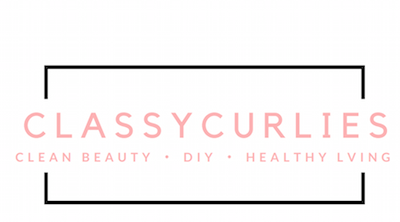Everyone likes to maintain youthful and healthy skin, hair, and body. Due to the daily life hassles and stress, it can be challenging to keep up with a skincare and hair routine. The simple solution is keratin-based lotions, hair care products, and food rich in keratin.
What is Keratin?
Keratin is a human body building block; it is a tough protein that forms the epithelial cell structure. These epithelial cells act as a lining for the inner and outer body surfaces. They assist in developing tissues in the hair, nails, and skin and form a lining for the internal glands and organs.
Keratin protein makes your skin smooth, supple, and beautiful. It also forms a protective layer that is less prone to tearing or scratching than other body cells. It shields your body from the factors that cause skin degradation by providing hydration and rigidity.
Keratin is popularly used in hair products for growth and anti-aging, but it is also essential for skin and general body health. In particular, keratin protein is necessary for body muscles, skin, tendons, hair, bones, ligaments, tissues, and eyes. Keratin can be extracted from horns, wool, and feathers for hair products.
How Keratin Helps Your Hair
There is an endless list of hair products in the market, and many advertise promises to help you achieve the best hair. Establishing which product you can trust is challenging, but one of the popularly known-to-work hair care ingredients is keratin. It is infused in many treatments, shampoos, volumizers, and leave-in creams like bhave hair care. Keratin could be the weapon you’ve been looking for to achieve shiny, thick, silky-soft, and healthy hair. It does the following for your hair:
Smooth and straight hair texture
Salon keratin treatments cause the most dramatic hair texture changes, but you can also use at-home keratin products. The improved hair texture makes it smooth, reduces unwanted waves and frizz, and makes it easier to style. Your hair’s look and feel significantly change.
Boosts elasticity and strength
Keratin repairs hair gaps that result due to damage and creates a shield for future brittleness and breakage. Stronger hair resulting from keratin product use enables it to withstand challenges like environmental stressors and heat from styling. If your hair would easily break off previously, its increased elasticity reduces breakage, making it look better than ever.
Protects against harmful elements
Keratin plays a vital role in guarding your hair against the damaging UV rays that are often overlooked. No kind of hair is immune to damage by weather elements, whether during summer or winter. Keratin helps your hair when it experiences back and forth change between heated indoors and cold winter air.
Improves moisture retention for a shiny look
Decreased moisture retention is one of the many effects damaged exterior hair cuticles experience. For this reason, even if you purchase hair products for moisturizing, your hair may be unable to absorb and retain the moisture. Keratin, however, helps to repair this exterior cuticle, enabling it to hold moisture better. Ultimately, the split ends reduce the frequent occurrence, and your hair achieves a shiny, beautiful look.
How Keratin Helps Your Skin
Keratin treatments are common for strengthening and growing hair, but now there are also skin keratin treatments. Depending on your skin’s need, these treatments come in creams or gels that you can apply to various parts. They are beneficial in the following ways:
Improves hydration
One of the major skincare benefits of keratin includes its exceptional moisturizing properties. Keratin peptides increase skin hydration due to their ability to reduce transepidermal moisture loss and reinforce the skin barrier function. Keratin treatments and products such as sunscreen lotions are among those that provide enough moisture to skin tissues for optimal hydration.
Reduces aging
Keratin has recently begun building a reputation due to its anti-aging properties for skincare. It has increasingly become popular among older adults who are looking to rejuvenate their skin. Cells in the body known as keratinocytes produce keratin which is a protective layer. It makes the skin supple and firm, just like elastin or collagen.
On the skin, collagen provides elasticity and firmness. When you use keratin treatments, the collagen level increases, resulting in smooth and younger-looking skin that can take away a couple of years from your appearance.
Enhances skin tone
The keratin protein protects your skin from radical environmental damages that cause wear. The protective layer keeps away pathogens that can cause damage and protects your skin against harmful environmental factors. This, in turn, improves your texture and skin tone.
Protects against UV Rays
UV rays are among the leading causes of skin cancer in older adults due to a lifetime of exposure to the sun. Thankfully, there has been the emergence of keratin-based sunscreens that act as a shield and guard your skin against the harmful sun rays that lead to skin degradation. Whether you’re going to the market, busking in the sun, or walking on a beach, apply sunscreen lotion with keratin daily.
How Keratin Helps Your Body
Our bodies need protein for almost all functions. Proteins are the building blocks of all cells and organs like the skin, bones, hair, cartilage, and muscles. Getting enough protein is essential for the repair or replacement of damaged and lost cells. Keratin, which has become a popularized protein, is vital for your body parts, other than the skin and hair. It is beneficial for your body in the following ways:
- It makes your nails unbreakable.
- Strengthens your teeth enamel
- Builds strong eyesight
- Boosts healing of wounds
- Allows cell development through movement, growth, and division
- Regulates cells’ sizes
- Reduces tissue damage resulting from friction
Individuals who experience keratin deficiency have slow hair growth, with hair that’s weak and brittle. Keratin deficiency also results in discoloration and weak nails, and dull, sagging skin with visible wrinkles.
Potential Sources of Keratin
Particular foods and nutrients are rich in protein or help the body produce more keratin for improved hair, skin, skin, nails, and other body tissues.
Fruits and vegetables
These are an excellent source for Vitamin C and Vitamin A. Vitamin C acts as a building block for keratin, where vegetable protein sources are absorbed with its help. Such sources of Vitamin C include peppers, citrus fruits like oranges, and Brussels sprouts. Vitamin A plays a crucial role in developing keratinocytes, which are vital for the healthy function of the eyes, internal organ lining, ears, and skin cells’ replacement.
Vitamin B7 or Biotin, on the other hand, plays a crucial role in metabolizing proteins, a foundation for keratin. Vitamin B7 sources include vegetables like broccoli, cauliflower, and onions. Whole grains are also an excellent source that enhances keratin generation in the body.
Meat and dairy products
Meat is rich in protein and is essential for assisting in keratin generation. Consume fish, animal kidney and liver, poultry, and lean meats. However, avoid or reduce consumption of fatty red meat. Dairy low-fat products contain amino acids that are essential for boosting keratin production. Consume cheese, milk, and low-fat yogurt for keratin development.
Additionally, incorporate high sulfur-containing foods like eggs, kale, dried beans, and soybeans for considerable keratin development. Other plant-based sources of protein that boost keratin production include almonds, beans, and walnuts.
Bottom Line
Keratin is an essential protein for your body that helps you live a strong, healthy, and beautiful life. Use the right hair products to boost growth, volume and reduce breakage by choosing those with keratin as a major ingredient. Protect your skin against the harsh environmental factors, pathogens, and UV rays by using keratin-based lotions and sunscreen to moisturize. Take care of other body parts like eyes, nails, bones, muscles, and tissues by consuming foods rich in keratin for their healthy development.




